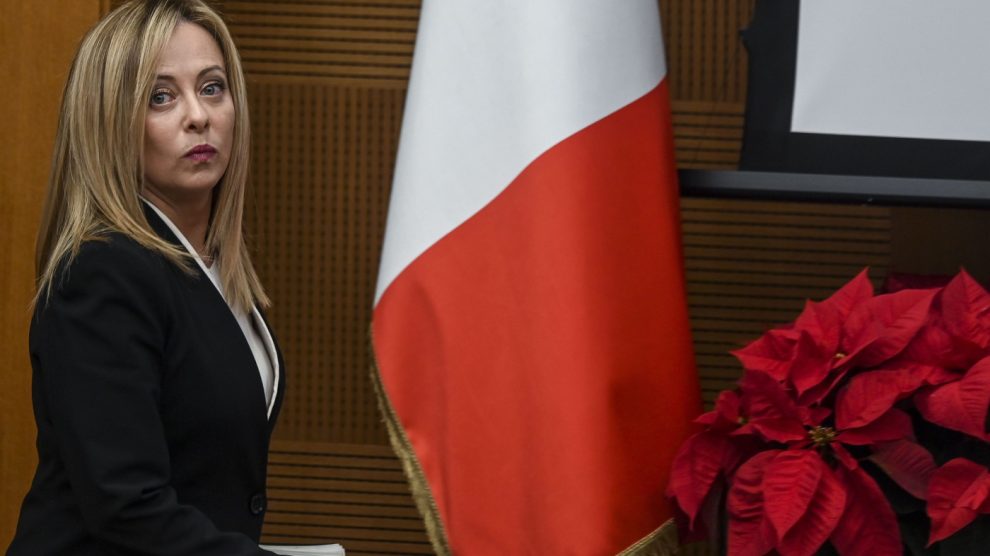Meloni is Algiers-bound. The Italian Prime Minister is poised to make her first official bilateral visit abroad in Algeria, where she’s expected to meet her counterpart Aimen Benabderrahmane and quite possibly President Abdelmajid Tebboune – as her predecessor Mario Draghi did multiple times in 2022 – on Sunday.
- The visit comes as part of Rome’s increasing efforts to link up with MENA countries, as it seeks to expand bilateral cooperation with crucial countries to address migration, boost stability and strengthen commerce.
- Foreign Minister Antonio Tajani recently travelled to Turkey and Tunisia (along with Interior Minister Matteo Piantedosi), and he’s expected to touch down in Libya in the near future. Also, Defence Minister Guido Crosetto visited Azerbaijan.
Beyond energy. As Italy diversified away from Russian gas, Algeria ended up becoming its biggest gas partner, promising to cover roughly 40% of its overall gas needs. Those deals came along with increased cooperation, including substantial Italian investments in Algeria renewable energy, industry and infrastructure, as well as collaboration on justice and security.
- Given the consolidation of ties and PM’s Meloni focus on energy security, one can easily expect increased cooperation and assurances – in the form of new bilateral agreements.
Political turmoil. Speaking to our sister website, Karim Mezran – Director of the Atlantic Council’s North Africa Initiative – noted that Algiers is focussed on aiding the Tunisian crisis. However, the country’s quick pivot towards Morocco – boosted by the Abraham Accords – “has created strong resentment in Algeria, and is putting Algiers in a corner, with the risk of radicalising its positions.”
- That, he argued, could happen by means of Algiers “playing the nationalism card (being a military regime) and bringing with it the involvement of Tunisia (protected by Algeria) and the potential drain of Algerians and Tunisians towards actors not friendly to the West.”
Rome’s role. The expert noted that Italy is acting as a balancing point at a time when Algeria is trying to renew its international standing, trying to capitalise on its new economic revenues and the strategic role it has taken on in European energy security, and thinking of making its size in the world known to organisations, such as the BRICS.
- “Italy is playing a crucial role in this, with diplomacy, politics and strategic economics. Rome has built an important bond with Algiers, beyond gas: it is allowing it not to feel isolated, to have an important interlocutor in Europe, ultimately in the West.”
Next stop: Libya? Although reports emerged about PM Meloni travelling to Tripoli, her government’s office did not confirm the trip. Minister Tajani had announced a future stop in Tripoli, where political strife and conflicting factions are still preventing a unitary government from taking shape and holding elections. Italy, within the United Nations and European Union frameworks, is working in that direction.
- Rome is also coupling its contribution to the UN-mandated arms embargo with its own concerns, notably migration-centred patrolling efforts and training the Libyan Coast Guard.
- The country’s political instability remains an obstacle to increasing the wider Mediterranean’s overall security. By working through diplomatic channels and offering logistical support, Italy remains committed to the peace process – which will require a great deal of work and inter-party collaboration.
“The Italian executive intends to avoid unrealistic moves and work in partnership with allies,” told us Arturo Varvelli, head of the European Council on Foreign Relations’ Rome office, “taking advantage of the renewed attention that the United States [is paying to] the North African dossiers” – such as the CIA director’s recent trip and the planned Washington meeting between special envoys on Libya.




